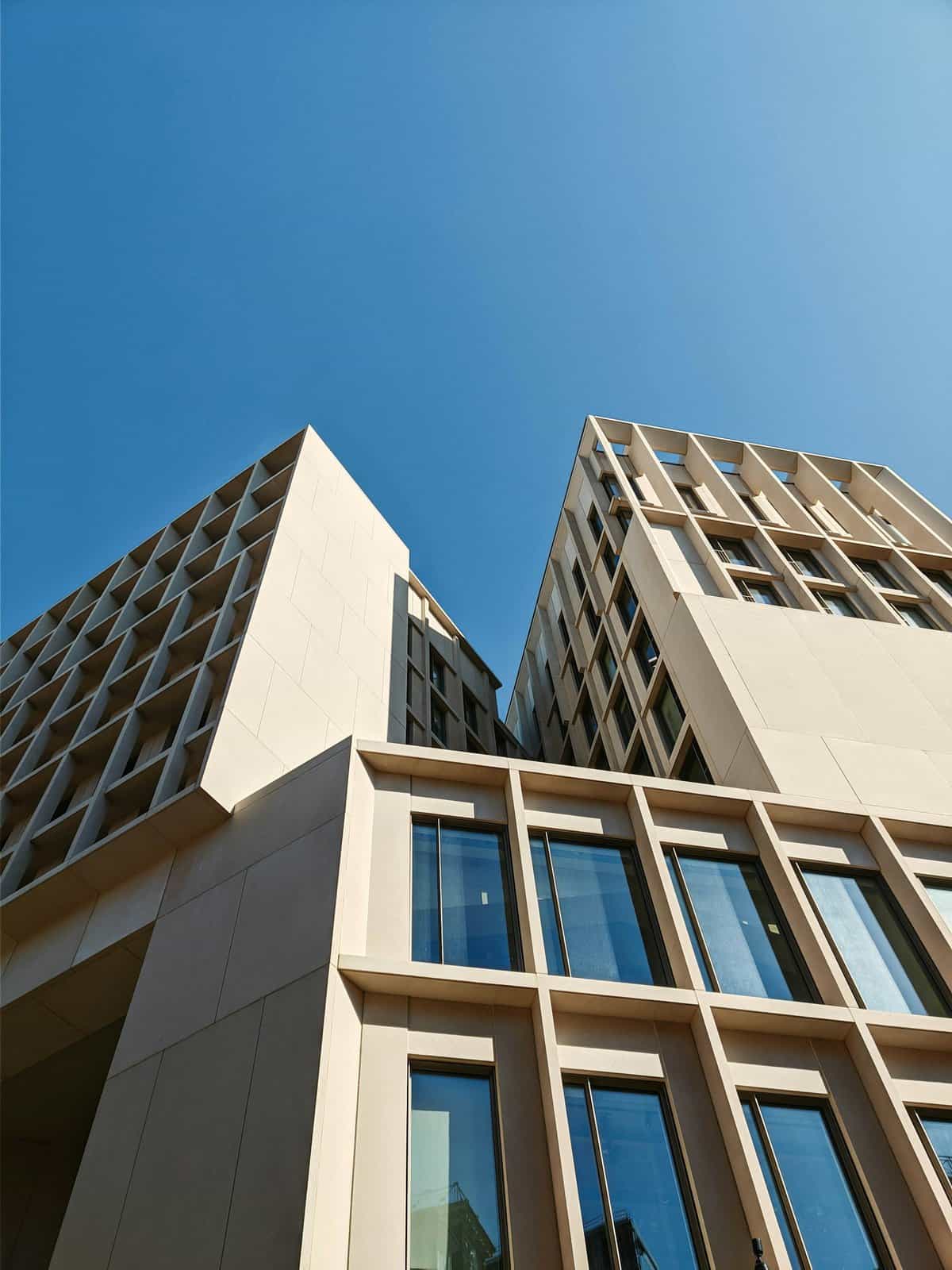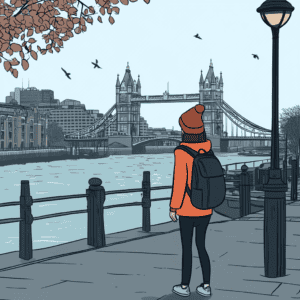Workaholic Financiers Club? What is the London School of Economics (LSE) Like?

- Originally published
- Last updated on June 21st, 2024 at 01:43 pm
Table of Contents
What is LSE like? If universities come with stereotypes, the stereotype of an LSE student is the underaged businessman, ready to conquer the world, and happy to struggle under the workload of 1,000 state unis for the privilege of future riches.
But like all stereotypes, it’s not the truth.
There’s a lot of diversity walking around this prestigious global university (just like London, where it’s located). Yet there are certain students who are really primed to thrive here, whereas others will find they’re better suited for another university, like Oxford, Cambridge, or even nearby contenders Imperial and UCL. We brought together facts and stats that are important to international students, talked to as many students as would have us, and put it all together to give you a sense of whether that’s you or now.
LSE is where you go because the workload is actually less than the 7 AP classes you took last year. And there’s no shame in that Deloitte internship. You can effect real change with the education you’re getting here, and you’re not embarrassed to admit you go all starry-eyed at the amazing speaker series events you’ve blocked out your Friday night to see.
LSE Study Facts
Degrees: Bsc, LLB, BA
Majors: Politics is in its name, and LSE offers expansive and notable offerings in political science, business, and economics. Courses like actuarial science, Environment and sustainable development with economics, economic history, and international and social policy with economics underscore the uni’s strengths. But also check out social anthropology, law, history, and data science; you’ll find 42 undergraduate degrees to choose from. US News ranks programs in economics and business #7 globally.
Location: London City Center, London
Cost for international students: £26,184 (sociology and social anthropology) to £28,176 (economics, law, and political science topics).
On-campus housing cost: 14 residence halls from just 43 total triple rooms for £129/weekly (the school gives a very slimmed-down contract term of just 31 weeks, making the total £3999). The most expensive private studios sets students back £458/week (39 or 50-week contracts). Keep in mind that university housing is scattered throughout London; students may end up miles from their pals in another dorm.
FAFSA Funds: Yes
Abroad from abroad: Yes, though just 12 schools are available, with limitations on programs. Students spend 2nd or 3rd year abroad, so make sure you’ll be eligible for a place and program if study abroad is important to you or you have a particular destination in mind.
Student body: About 12,000 undergraduates total, with 64% international (that’s 7,680).
Five adjectives: Driven, international, cliquey, invested, political
What’s it Like to Study in Central London?
In and Around Holborn
It doesn’t get more central than this. Nestled against King’s College London on the north bank of the Thames, LSE is a stone’s throw away from Waterloo Station, a behemoth transportation hub that can get you anywhere in the city. It’s a good thing, too, because LSE students are pretty spread out.
That means that on your way to your buddy’s dorm, you can take in a museum or stroll the halls of government. The university nexus is in Holborn, once known for its underground river to the Thames, and in medieval times, as a hub for lawyers and courts.
Today, Holborn comes with few stereotypes: in other words, locals think it’s too boring to comment on. Sure, you can visit the Royal Courts of Justice and treasures like the Cittie of Yorke pub (which the fictional David Copperfield once visited). But Holborn, like the LSE students it shelters, isn’t known for its flashiness.
On the bright side? Should you wind up thinking the neighborhood lacks character, take heart: you can walk to much of central London from Holborn.
The reality is that these haters don’t appreciate what being in the eye of the storm has to offer. Students here can’t get closer to every corner of this pulsing international city. Hop on one of its iconic double-decker buses or hit up Holborn tube station, a 6-minute walk from the Student Union, for a quick jaunt to the world’s best museums or nightlife — yeah, so boring.
You’ll find all the creature comforts of London at your doorstep, from coffee shops to back alleys pubs with sidewalk picnic tables (to celebrate mid-semester wins). Sure, they’re overpriced and many of the biggest London attractions are overrated, but if you take it slow, you can wander around the city long enough to sniff out the undiscovered gems for yourself. And that’s the charm of a global city like London.
“I was overwhelmed at first. There is a pressure to do it all but you can’t do it all on a student budget. London is actually less expensive than where I’m from, but I still can’t do it all. And I’m studying, too!
Where to Hang Out
Take time to get out of the library, and you’ll slowly find your own favorite haunts around the neighborhood.
Sometimes, that’s literally. Check out Red Lion Square for a séance with resident ghost Oliver Cromwell. Surround yourself with the past at the Sir John Soane Museum on a rainy afternoon; it’s packed with architectural and sculptural relics from all over Europe, all jammed into their eccentric collector’s house and free to enter.
If you need to hit the books, study at Cafe Botanical, an airy industrial space, can help keep grueling group meetings on track and caffeinated. Be sure to grab a spot against the walls so you can charge your laptop. Then keep the chocolate croissants coming.
When your stomach starts to rumble, keep Leather Lane Market in mind. A largely undiscovered local lunch spot known for its diversity of food trucks, you’ll be able to sample everything from Ethiopian to falafel and curry.
And if you’re getting too preoccupied with homework, and already tried relaxing at the student fav George IV pub, let off some steam with a good laugh at Top Secret Comedy Club. It’s not only just a ten-minute walk from LSE up Drury Lane, but you can often score weekday tickets at a steep discount.
Speaking of getting out on a student budget, get day-of West End tickets to see the biggest theater shows in town. Save a bundle using the TKTS booths just like you would in New York (use the same app, too). You can start hunting tickets up to three days ahead of the show.
From LSE’s student union, it’s a 20-minute walk to dance the night away at Fabric, often voted the best club on the planet, and with multiple rooms, you can change up the beats and get away from crowds and flailing arms with style. There’s also Simmons right in Holborn, a club with multiple locations that boast a photo booth and drinks served in teapots and teacups, because, well, of course.
Getting Around London
Getting around Holborn and the rest of London by bike can save students precious money while give them some exercise, but it’s not always recommended. A handful of fatalities occur annually (ten in 2023), sometimes including LSE students. It turns out that London’s maze of streets just weren’t built for vehicles and cyclists to share space.
“I cycle quite a bit, but it does take longer than the tube. You stop and start a lot. That’s ok with me. It’s a relaxing part of my day and I’ve explored more places in London than I would have otherwise. There are good cycling lanes in some places, and other routes are really not worth it. It depends where you are living.
Safety & Diversity
Personal safety is another issue for some students. Holborn’s crime rate seems sky-high, with 879 crimes per 1,000 residents.
What?
Is that even possible? Well, yes, and it doesn’t mean you’re almost guaranteed to be a victim. Holborn is a central London district where thousands of commuters and tourists congregate every day, and crime counts include them.
On a per resident basis, that can make crime seem scary high. However, students say the neighborhood is not particularly dangerous compared to other areas in central London.
“I’ve always felt safe here, even late at night. It helps that there are always other people out.
For LGBTQIA+ and students of color, students say LSE feels safe, too. You’ll have to hop on the tube to head over to Common Press, a massively influential intersectional book shop with club nights, panel discussions, and even writer’s workshops.
But you’ll find plenty of nearby spots to relax and have a drink in a gay-owned coffee shop or club. Most bars and clubs are clustered in Soho, a mile west of campus (mind-blowing fact: the area has been known as a gay cruising spot as far back as the 1600s).
In spite of the school’s reputation for “finance bros,” which might suggest a conservative tilt, the urban campus is socially progressive, according to every single student we talked to.
“It’s a very diverse area. You see people from all over the world living here. And as for students, it’s very international. That has helped me feel welcome and safe.
Is there a caveat?
You betcha.
Diversity exists in terms of nationality and ethnicity. But students are wary of the school’s diversity in terms of socio-economic class. In fact, one student online calls LSE “an international tourist destination for the 1%.” Another American student who grew up working class said she’d never been around so many wealthy people, and the lack of diversity cratered class discussions about social policy.
The lack of class diversity is an LSE issue not a London one.
Overall, London is a world-class city for students of all stripes, including tons who are just making ends meet to live in this global and expensive city (and in spite of fears the student body is too well-off, you’ll hear plenty of students complaining about London’s notorious high costs.
The good news is that at LSE, you won’t even have to buy a train ticket to see the city’s nearby landmarks.
At LSE, there’s tons of culture, for free, right in your own neighborhood. While central London’s little nooks and crannies are rarely empty, for those who want to study in silence, pack your headphones and get our your people-watching glasses. It’s all part of LSE’s free crash course in British culture.
Campus Life at LSE
Undeservedly, many LSE undergrads have a reputation for not venturing off campus too often. Of course, it could be simply that they love their campus and its amenities rather than that their workload is keeping them glued to their computer screens.
LSE’s campus doesn’t win awards, but quietly entrances some students who find it one of the coolest in the world.
Why?
With its mix of classical and contemporary, LSE is a city university to the core. It boasts white stone offices dating from the early 1900s, with lecture halls in old banks. Alongside them, you’ll enjoy modern multi-story newcomers with all the technology you’ll need to conquer finals, and then the London financial world.
“LSE campus is cosmopolitan and the culture can be cold. It was a big transition to university culture and I thought it was normal that people weren’t as friendly as they were at school, but as time has gone on, I have started to believe it is unique to LSE.
Its rooftop terraces wow students and the many balconies with cozy seating areas help students find the perfect spot to study while getting some perspective on the city.
It’s almost impossible to count the number of rooftop terraces at LSE. From most campus buildings, head up, and you’ll discover some with creeping vines and picnic tables, and others with million-pound views of the London Eye ferris wheel and the meandering River Thames—die hard competitive types should know that LSE can’t compete with its neighbor and fellow University of London campus, King’s College London, for riverside ambiance.
But that doesn’t mean LSE doesn’t come with its own charms. For example, if you’re feeling formal, you can head to the Old Building’s 6th floor library to read between classes in a cushy velvet seat underneath a chandelier.
Need to touch real grass? “The Garden of LSE” is Lincoln’s Inn Fields, and serves as the campus “quad.” You can practice tennis on the courts or just nap under the trees on a dry day.
“People have the stereotype that LSE students never go out. LSE is very social. First term, everybody is trying to make friends. Get involved early!
However, overall, LSE lacks the Victorian, old-world charm of historical UK universities as well as the green space of sprawling, non-urban campuses. LSE is a city university with an urban vibe.
The Saw Swee Hock Student center is home to the student union. This towering “red brick Eiger” is a mountainous cornerstone of LSE’s academic life and a welcome retreat in central London. Go to the gym, the pub, cafés, and a nightclub all in one place, all for less than elsewhere in London.
Housing at LSE
Speaking of London prices, housing is another area where LSE students grin and bear it. Costs here are higher than anywhere else in the UK, after all, it is central London.
The upside?
You pay double what everyone else does, but laze around and look for housing over the summer, and you’ll find something to rent by fall due to London’s abundant private student and general housing.
With other UK uni students lining up in October and failing to secure a spot for the next academic year, LSE students will get in somewhere. It’s just a matter of whether it’s in their budget.
Stay on campus and you’ll have multiple dorm options all over the city of London. There are 4,000 spaces across 14 facilities, some as far as 2 miles from campus.
You’ll save a bundle compared to private accommodation if you win a coveted triple room with a shared bath in a hall like Passfield, where you can score a 31-week lease. That means you’ll have to vacate your room during Christmas and Easter breaks, but walk away paying £4,030 for the year, a true bargain in central London. That’s £130 per week. You’re a mile from campus, but if you get to know friends in your hall, you won’t be lonely, either.
Dorms are clean, new, and spartan, and often with pretty skimpy mattresses. Many come with cute interior courtyards with grass or picnic tables and small cafeterias, should you choose a catered hall with some of your meals included. IT suites provide printers and cozy study spaces where you and your classmates can use whiteboards and hone group projects.
Bathrooms and shower stalls can be institutional, lined up together with little privacy.
The features and vibes of each accommodation vary significantly. However, single rooms are fairly standard, with tons of storage, shelves, desks, and Ikea-style armoires for uninspiring, yet perfectly reasonable and well cared-for rooms.
“Hall events are your lifeline. If you don’t know anyone in your hall, it can be a bit lonely.
The bargains last just one year. Second-year students will need to find their own accommodation. The cheapest student room we could find off campus in London was £191 per week with a 50-week lease (bringing the grand total to £9,550).
But that’s unrealistic: if you can’t score that kind of deal, the average weekly student price in London is £278/week with a 50-week lease (£13,900).
Another important point about campus housing: many of the LSE halls are intercollegiate, so the friends you make may not even go to LSE. That’s right: you’ll be getting your future network from UCL, King’s, and other University of London universities (except Imperial).
Intercollegiate halls have a reputation for being friendlier since they’re large (housing many students in total) and diverse (housing students from across departments, majors, and even universities). If you want to force yourself to socialize, consider a gargantuan dorm like International Hall.
What’s it Like to Study at LSE: Academics
Uni Strengths and Unique Courses
Check out the #2 library for social sciences in Britain and you’ll see LSE smashing its 2030 goal to become the top world university in social sciences.
In fact, they already boast that they’re first in the UK and Europe for social sciences according to the QS World Rankings. However, the institution, a relative newcomer to the elite university scene (LSE was founded in 1836) has long been overshadowed by Oxford and Cambridge.
And it’s in a good position to top the ranking tables when it comes to economics and political science, the university’s long-standing focus. US News ranks it#7 globally in economics and business. Its website is a crucible of political activity, advertising a “festival” that includes political discussion sessions, lectures, and panels about climate change, political unrest, and even the upcoming presidential election in the US. There’s a student undergraduate research conference, too.
It’s no wonder that 5 years after graduation, students here out-earn all other uni grads in London (with economics grads pulling in an average of £73,700 salaries. For reference, that’s more than double the UK’s overall average annual salary).
Don’t get too excited; studies show that students from wealthy families earn more than those from less affluent families even when they attend the same universities and take the same courses, so the compounding of privilege may be part of the perception that LSE degrees make for successful students (26% of LSE students come from private secondary education).
However, all students come to LSE and find a specialist school with niche expertise and world-class scholars.
There are only 42 courses (majors) here. While you’ll find a number of departments and centers, all are connected to the social sciences. Law? Social policies? International relations and Chinese? You’ll immerse yourself in a very narrow world including the top scholars and international figures in the field.
That is, except for a unique orientation class: LSE 100. Taken by all students, it’ll be your only chance to interact academically across all departmental boundaries and debate current issues like, “How can we create a fair society?” or “How can we control AI?” Choose your theme from three offered each year and get acquainted not just with a global issue, but with the tools LSE offers and the thought process you’ll need to master to be successful in all your courses here.
LSE is known for subject matter expertise in economics that can’t be had elsewhere. For example, as students of economic history, undergrads can split their courses between the two subjects equally or lean more heavily on the history of economic fortunes in countries worldwide. An entire department supports students at LSE. In another university, you might have to split your brain power between departments that never communicate, taking courses piecemeal and à la carte.
In the philosophy, politics, and economics degree you’ll also get a unique LSE experience: students focus on all three subjects equally until your last year (of an unusual 4-year program). Looking for economics prowess and breadth? LSE might be right for you for many of these joint or combination degrees.
Student Takes on Satisfaction and Wellbeing
Students give LSE high scores for intellectual stimulation, and that gels with the experiences of many students we talked to, who wholly agreed their best classes were truly outstanding. Students at LSE also told national surveyors that they felt challenged to do their best work.
That’s good news for a university that just a few years ago ranked among the lowest universities in the country for student satisfaction. The annual survey no longer asks the question, “Are you satisfied with your course?” But LSE students do answer similar questions much more positively than they did just a few years ago.
LSE wins accolades for listening to student concerns about satisfaction with their courses, helping combat isolation, and taking wellness and mental health services more seriously. In fact, student wellbeing services offers students 6 free counseling sessions annually, which helps fill the gap for sporadic users of the service who won’t need to engage the National Health Service for occasional check-ins.
Not all students agree with the survey results, however.
“Welcome to burnout culture.
Students told us that the workload expectation is high, but often, part of the problem is the assumption that students all come into class with the same background knowledge. Math-heavy first-year economics classes, especially, get this critique, as students say they understood that they’d be toast if they fell behind in classes, so they clawed their way through material they never learned in their first year, trying to keep up.
Pros and Cons of Student Culture
The same critique creeps into internship opportunities. Your toothbrush may still be in your carry-on when you’re hitting up job fairs and applying for opportunities. It can all feel like a whirlwind as you run in place, trying to not get left behind.
In other words, LSE’s rigorous course, career focus, and city-center location combine to make students think they’re small employees in an urban workscape rather than a supportive campus community.
At LSE, you’ll quickly learn internship terms like “spring week” (it’s a short-term internship, not a vacation to the beach). You might even find the students’ mental health confessions social media page, where you can see the true toll that stress takes on students who are used to being “high achieving” and who are trying to maintain the facade that they have it all together.
We heard that student services are also at their best in the career-focused missions. In general, students who adore LSE’s offerings in terms of enrichment are those who gear their extracurricular lives and their mental energy (and even friend-making) toward their future careers.
“I met most of my friends first year in a society for my course. It’s not just all about career. There are breakfasts, balls, social events, bowling, you name it.
Confidence is key, and students who know that they don’t have it together, but are excited to plow ahead anyway, asking dumb questions all the way, are likely to find LSE and its ambitious students exciting. Check out the 200+ student societies and 50 sports clubs. The Athletics Union requires a paid membership, but can buy you some time away from the academic crunch for a game of basketball, kabaddi (a kind of rugby-tag), or ultimate frisbee.
“Academics at LSE are motivating. I never thought I’d have this kind of confidence in my field but it’s because I haven’t just been a student sitting in lectures. I have been a member of a professional community. That, to me, is what the LSE brand means.
At its best, the LSE dream produces student activists who start their own non-profit projects, like LSE master’s grad Sveto Muhammad Ishoq did to call attention to Taliban policies in Afghanistan that shut women out of education and public roles. She follows in the footsteps of John F. Kennedy, who briefly studied at LSE, Mick Jagger (who also left the program), and some 54 heads of state around the world.
“The alumni network is part of what I wanted out of LSE and I have found the alumni network is going to be valuable to me, having gone to LSE. I would miss out on that anywhere else.
At LSE, you’ll know you got a world-class education and are fully capable of leading your country when you make it through. We bestowed the adjective “invested” on LSE because we want to emphasize that the sometimes all-consuming hustle life isn’t a bad thing, as long as you’re happy to be invested. With the right wellbeing support, there are big payoffs to the rigor you’ll find in this corner of central London.
Applying to LSE
Apply directly through the UK’s digital portal, UCAS, by January 31 for priority consideration (after that, you’ll only be considered if there are open places in your program).
Students can apply to a program like geography and economics with 5 AP scores of 5 in sophomore, junior, and senior years only, and a GPA of 3.7.
SAT and ACT scores aren’t part of LSE admissions. You’ll need a personal statement, a letter of recommendation, and possible, preferred subject matter for your AP tests. High-level math performance is often touted as key.
Related Posts

Jessica Share
Jessica is the writer, Ph.D., and mom-of-an-abroad-student-in-the-UK at the helm of College Abroad Guides. When she's not asking college students where the coolest place to hang out in their city is, she's figuring out how she can make $60 imported Greek oregano potato chips and £50 British bacon potato chips appear on her doorstep for the cost of a local bag of Lay's.





